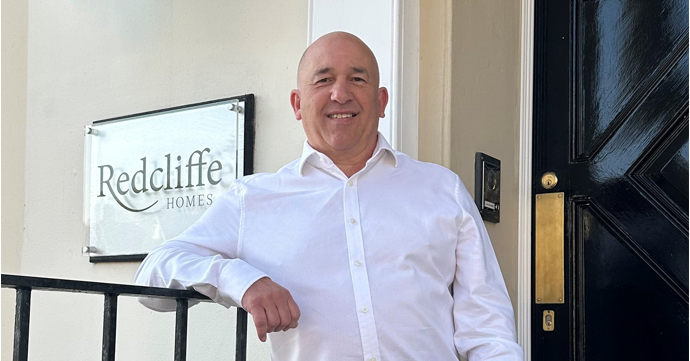Family mediation offers a safe environment, where, with the support of the mediator, you and your ex-partner can discuss important issues, consider different solutions and agree independent futures together.
WSP Solicitors is offering a new mediation service and explains just how its team can make life less complicated.
About the expert — Associate solicitor and mediator Simon Hawkins

Simon Hawkins is a solicitor and mediator who specialises in divorce including matters relating to finances and children as a family law mediation specialist.
He has a wealth of experience across the legal profession and has been working in family law since 2017.
Simon's approach is to focus on clients' needs so the best outcome can be achieved. He believes in working amicably to help to salvage areas of relationships to bring about a more productive future.
When would someone need to call on the services of a mediator?
When a relationship breaks down it can be a very difficult time for all involved and brings with it uncertainty and change.
It can be difficult to talk to your ex-partner and even more difficult to agree those important practical decisions that need to be made, such as what will happen to the home, how you are going to afford to live, what will happen to the family savings, your pensions and debts, what is going to happen to the children, how they will be cared for and how you will co-parent.
A family mediator can help you have these discussions with your ex-partner and make the process less complicated. You are likely to end up with a far better outcome for your family if you work together with your ex-partner to agree a solution.
How important is the role of a mediator in a separation?
The mediator’s role is important as they need to provide a safe environment for the clients to talk and to give them the best chance of reaching an agreement.
The mediator ensures each client feels able to share opinions, ideas and proposals. If a power imbalance arises the mediator will address this so that parties are on, as far as possible, an equal footing during the process.
The mediator may also stress-test ideas with the couple to ensure the agreement will work in the real world.
While the mediator cannot give advice, they can provide legal information to assist in reaching an agreement. They can also signpost clients to experts such as accountants, pension experts and therapists.
How do mediators make life less complicated for clients?
There are several important advantages to family mediation which really do make things less complicated for our clients.
The first is access. Getting a court hearing will, on average, take 12 to 16 weeks whereas if a client wishes to discuss or start family mediation all they need do is contact us and we can arrange the mediation information and assessment meeting after which, if mediation is appropriate and both parties want to mediate, then mediation process can begin.
Our service also helps with cost. Generally, you can expect to pay in the region of £1,000 per person in mediation fees. This compares to £14,000 or more when going through the courts.
Mediation also reduces stress. Divorce and separation are stressful enough without adding in to the mix a courtroom. The court procedure can often feel very formal, disjointed and the ultimate decision rests with the judge who is unfamiliar with the family and their situation. Family mediation offers our clients the chance to discuss their issues in a more relaxed environment. We create a safe space where they are encouraged to share ideas. Mediation is confidential so the clients have the security of sharing ideas without repercussions.
Family mediation is voluntary which fosters better communication. Both clients need to want to mediate, and the goal of mediation is for them to work together to reach a solution that works for them and their family. This way the outcome is often seen as fairer, whereas at court the parties are often left with a sense that one party has won and the other lost.
The real beauty of mediation is that it gives clients a sense of control. Whilst the mediator will facilitate meetings to ensure both clients voices are heard and help them reach an agreement; ultimately family mediation is self-determining. The couple decide what the issues are, how fast the mediation progresses, when the next session will be and what agreement is reached.
This is in stark contrast to being at court where you are told when to attend, how long the hearing will be and what will be discussed. At the hearing the judge controls the courtroom. They decide when you can speak, what evidence is allowed and what the outcome is.
The mediation environment allows our clients to have their say, reduce conflict and be in control of the discussion, which is more likely to result in a mutually beneficial agreement.
In summary, mediation is quicker, less stressful, more cost effective and more accessible than court. Mediation allows clients to take control of the process and arrive at their own decisions, which work for them and their families.
How quickly can meetings be set up – do they take weeks or months?
Family court cases face an average wait of between 12 to 16 weeks for a first hearing.
In contrast, if a couple wish to start mediation all they need to do is call or email WSP to arrange a mediation information and assessment meeting. Once the meeting is complete, mediation can begin. Therefore the process can start within a matter of weeks.
The overall length and time of the process is dependent on those involved. Mediation is self-determining so the couple have control over the issues they wish to discuss, the pace of the mediation and the solutions reached.
Some couples will reach an agreement after only a few sessions, others may take longer, but the process is about ensuring you reach a fair agreement that works for your family and not one imposed on you by a court.
Is it a costly service or could it save couples money?
The average cost of mediation around £1,000 per person, although the final costs will depend on how many sessions the clients have.
The average cost of divorce through the courts was £14,561 in 2021. Mediation is a very cost-efficient way of resolving disputes.
Are couples legally divorced after the mediation agreements have been reached?
No, they still need to make an application to the court to divorce and obtain a Final Order from the court. Mediation is there to help them reach an agreement in respect of the finances and or children.
When you divorce, you have essentially three things to consider. The first is the divorce application where you have to apply to court and get a final order which ends the marriage. No fault divorces have been around for a few years now so generally this part of the process is straightforward and relatively inexpensive.
Where children are involved, couples need to agree the practical child arrangements such as where they will live, how often the other parent will see the children, what happens at key dates such as birthdays and Christmas, school arrangements and how to introduce new partners. This is where mediation can help and decisions can then be drafted into a parenting plan or agreement. If you cannot agree, you go through court, which is costly, stressful and time consuming.
When it comes to finances, couples need to agree what is happening to the finances covering ground from the house and pensions to savings, debt and spousal maintenance. Mediation can also significantly help here. Couples can use mediation to work together to reach an agreement. This agreement then goes to a solicitor to draft into a consent order, which is sent to court and approved by the court. This is then binding on each party.
If couples cannot agree, then they can go to court but as with the child arrangements, this can be costly and time consuming.
Why are you proud to offer this service at WSP?
We realise that life is not always straightforward and can be challenging, especially at the time of a relationship break down. There will be high emotions, stress, and difficult issues to discuss.
WSP is a modern, forward looking firm of solicitors and in the family team we want to be able to offer our clients various options and services to resolve their issues. We recognise each client and family will have their own bespoke issues and needs and we want to tailor our services to meet the varied needs of our client and their families.
For more information visit wspsolicitors.com.



















